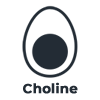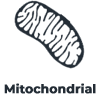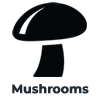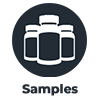The growing awareness of new foods that boost health has led to greater research into mycology—the study of fungi, namely mushrooms—and their functional use as an extract. However, the realm of mushroom extracts is filled with a growing divide between those who prefer whole fruiting bodies and those who prefer mycelium on grain.
Mushroom Extracts: Whole Fruiting Bodies vs. Mycelium on Grain
What is a Mushroom Fruiting Body?

A fruiting body is generally what you would visually recognize as a mushroom. It is fleshy, contains spores, and grows above ground or directly on the surface of its host, like a tree or old log. The mushroom's fruiting body comprises a stem, cap, and gills, which are what the general populace would eat in a culinary dish, but in nature, it acts primarily as the reproductive component of a fungal system, dispersing spores and inoculating hosts. Not all mushrooms have a fruiting body.
What is the Mycelium of a Mushroom?

Mycelium is the main body and feeding membrane of a mushroom. It grows underground or within the host plant. While it might not look like much, the mycelium acts much like a complex network that can communicate with and adapt to its surrounding environment. Think of it like the roots of the mushrooms. The mycelium is responsible for taking in nutrients by breaking down decaying matter using various enzymes. These nutrients are absorbed and transferred through hyphae to feed and support not just the fungus itself but whole ecosystems.
Fruiting Bodies and Mycelium as Medicine
Mushrooms are used and consumed via extracts from either whole fruiting bodies or mycelium. These extracts are designed to offer a more concentrated form of the glyconutrients and healthy components present in mushroom extracts. Fruiting body extracts often involve hot water extraction. In the process, a mushroom is placed in hot water, which essentially breaks down the chitin in the cell walls. Humans lack the enzyme needed to break down chitin. So doing an extraction is necessary to be able to get the nutrients from the mushroom's fruiting body. This extraction pulls out beta-glucans, the active compounds held within the cell walls of a mushroom. The hot water extraction is then purified and dried into a powder with all the beneficial mushroom material kept in.
With non-fruiting body extracts, the mycelium is grown on a sterilized grain, usually brown rice. This is then dried and ground into a powder. So not only are you not getting any of the beneficial compounds that are only found in the fruiting body of the mushroom, but you are also mostly getting ground up grains that the mycelium is grown on. These are essentially very expensive ground up rice and grains being sold as a mushroom extract. While its true that certain mushroom mycelium can be grown properly and put into an extract, these are specialty extracts that are grown on proper substrates, not grain. If you see a product saying freeze-dried myceliated brown rice, that means you are essentially receiving ground up brown rice with the roots of a mushroom extract mixed in.
Choosing True Mushroom Extracts
Fruiting bodies offer a much more effective, high-quality product than mycelium extracts. Fruiting bodies are considered “full spectrum” as they provide a wider array of the mushroom’s nutritional components. Fruiting bodies offer more minerals, including phosphorous, copper, zinc, and potassium. Fruiting body extracts also contain higher concentrations of vitamins, including vitamin C, vitamin D, beta-carotene, and various B vitamins.
Mycelium, on the other hand, was primarily created as a cheaper alternative that was quicker to produce. The benefits of mushroom extracts are studied in relation to the fruiting body. Mycelium actually contains very little of the important compounds, vitamins, and nutrients of the actual mushroom. Furthermore, mycelium is not allowed to be considered a mushroom by the FDA, but many companies in the mushroom extract industry will hide this with clever labels. For instance, instead of listing beta-glucans (the effective compounds in fruiting bodies), mycelium producers will generalize by stating that their product contains high amounts of polysaccharides. This isn’t untrue but only because polysaccharides are a class of carbohydrates, and the brown rice used in mycelium extracts is definitely a carbohydrate. In other words, the high amount of polysaccharides mainly comes from the starch, gluten, and other non-mushroom components in the brown rice.
With mycelium on grain mushrooms, you are essentially getting a lot of ground rice with low potency mycelium. Fruiting bodies give you nothing but the potent, effective, concentrated compounds present in the actual mushroom extract.
Mushroom Extract List
Below you will find a list of popular mushroom extracts:
- Black Hoof Mushroom
- Chaga Mushroom
- Cordyceps Mushroom
- Lion's Mane Mushroom
- Maitake Mushroom
- Poria Mushroom
- Red Reishi Mushroom
- Shiitake Mushroom
- Turkey Tail Mushroom
- White Jelly Mushroom
Where to Buy Mushroom Extracts?
Nootropics Depot offers a wide selection of mushroom extract powders, capsules and sample packs.
Want to learn more about our mushroom extracts? Check out our other mushroom extract blogs:
Which is the Best Red Reishi Mushroom for you?
Which is the Best Cordyceps Mushroom for you?
The Ultimate Guide to Nootropics: Getting to Know Mushroom Extracts
View more Nootropics Depot blog articles by clicking the links below:
CoQSol-CF CoEnzyme Q10: The Superior CoQ10 Supplement Over Grocery Store Brands
The Top 5 Milk Thistle Health Benefits
A Closer Look At The Top 5 Taurine Benefits
Melatonin Supplements: Did You Know This Popular Over The Counter Sleep Aid Is Often Overdosed?
How To Boost Your Immune System With the 5 Best Immune Supplements
Nootropics Depot's Guide to the Top 10 Natural Nootropics of 2018
EpiCor Immune Health: The Natural Immune Boost Supplement You May Not Know About
Nigella Sativa: The Top Health Benefits of Black Seed Oil Extract
Magnesium Glycinate vs. L-Threonate: Which Is The Best Magnesium Supplement?
Cognizin Citicoline: A Choline Supplement That Supports Healthy Brain Function
7,8-Dihydroxyflavone: A Brain Health Supplement That May Support Neuroplasticity
Creatine: A Nootropic For Bodybuilders, Athletes, Vegans, Vegetarians Alike
How to Find the Best Curcumin Supplement and What to Know Before You Buy
Comparing Rhodiola rosea Extracts: Rosavins vs. Salidroside
Berberine: A Look at Potential Benefits of this Versatile Supplement
Lion's Mane Mushroom: Comparing our 1:1: and 8:1 Extracts
Nitric Oxide Boosters Reviewed: L-Citrulline, Agmatine and AAKG
Red Reishi Mushrooms: Comparing our 1:1 and 8:1 Extracts
Comprehensive Guide to the Best Anti-Aging Supplements
Cordyceps Militaris Mushrooms: Comparing our 1:1 and 10:1 Extracts
Bacognize vs. Synapsa: Which Ayurvedic Herb is Right for You?
The Nootropic Synergy of Caffeine + L-Theanine
L-Citrulline vs. L-Citrulline DL-Malate: Which is Best?
Shilajit: A Look at this Amazing Ayurvedic Compound
The Ultimate Guide to Nootropics
Teacrine: The Alternative to Caffeine
Zembrin: A Natural Way to Boost Your Mood
Ashwagandha: KSM-66 vs. Sensoril
Panax Ginseng: What You Might Not Know
Palmitoylethanolamide: Known for its Pain Reducing Qualities
Put to the Test: A Look at Nootropics Depot's Purity Testing
Browse More From Nootropics Depot
Ayurveda | Adaptogens | Amino Acids | Choline Supplements | Fitness Supplements | Immune Support | Metabolism Supplements | Mushroom Extracts | Natural Plant Extracts | Natural Nootropic Capsules | Natural Pain Support | Patented Nootropic Extracts | Sleep Support Supplements | Softgels | Solutions + Sublinguals | Enteric Coated Tablets | Nootropic Samples
Attention: These statements have not been evaluated by the Food and Drug Administration These products are not intended to diagnose, treat, cure or prevent any disease.









